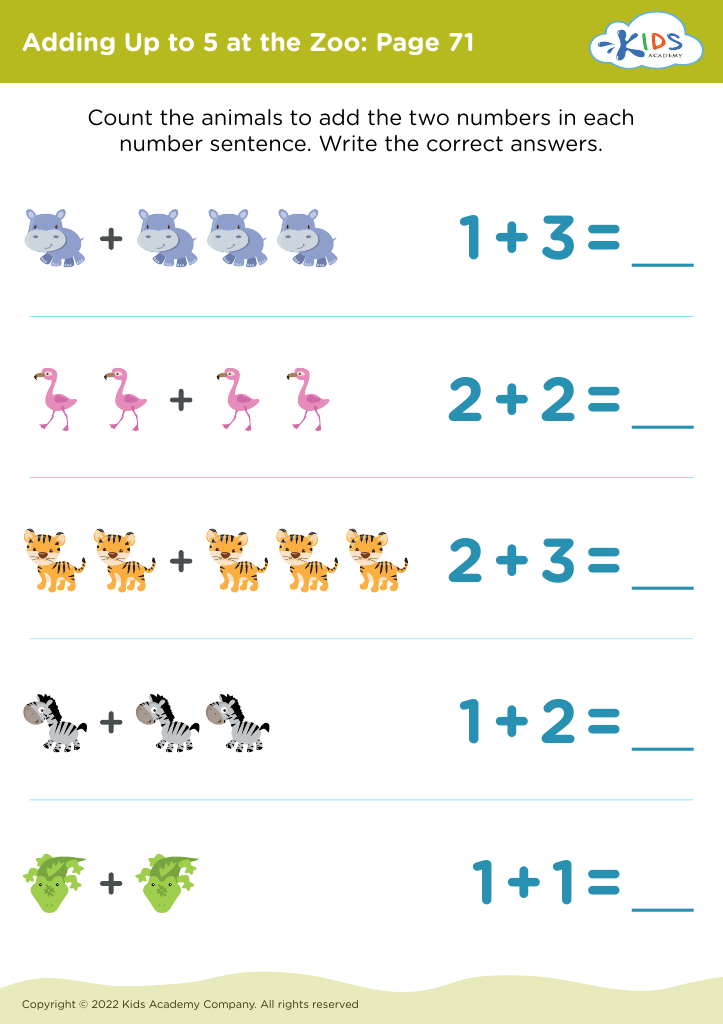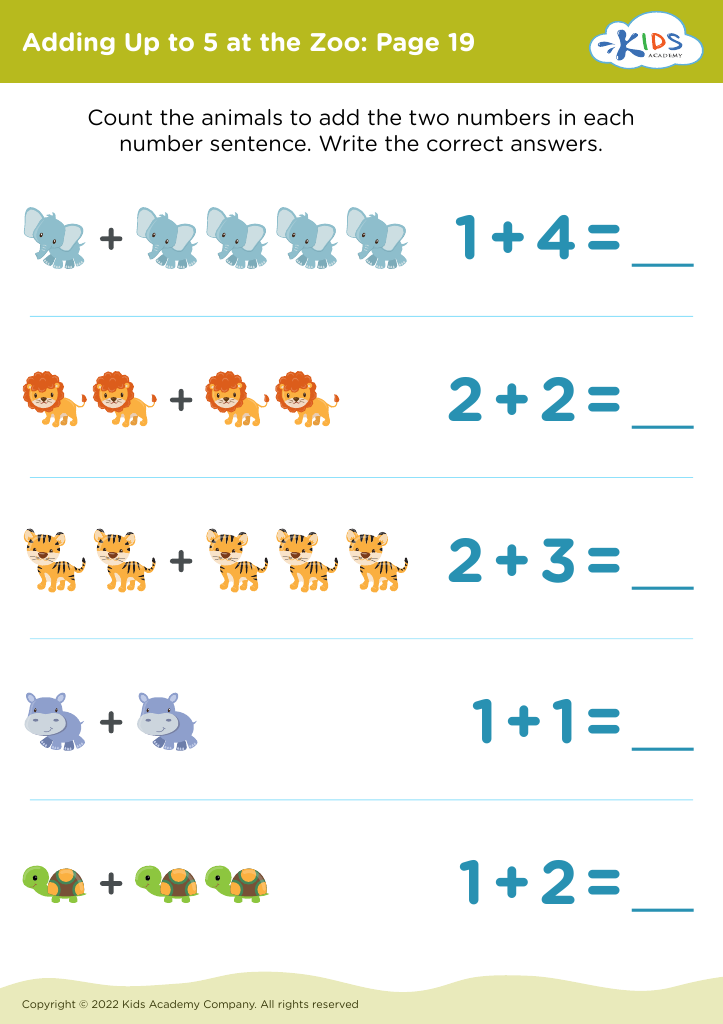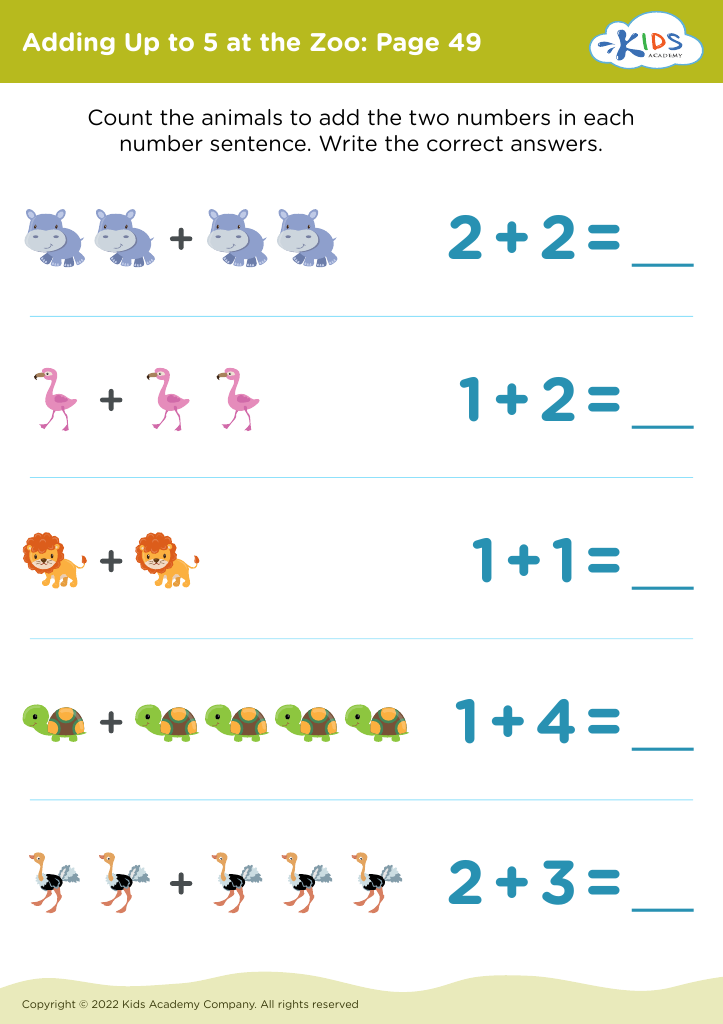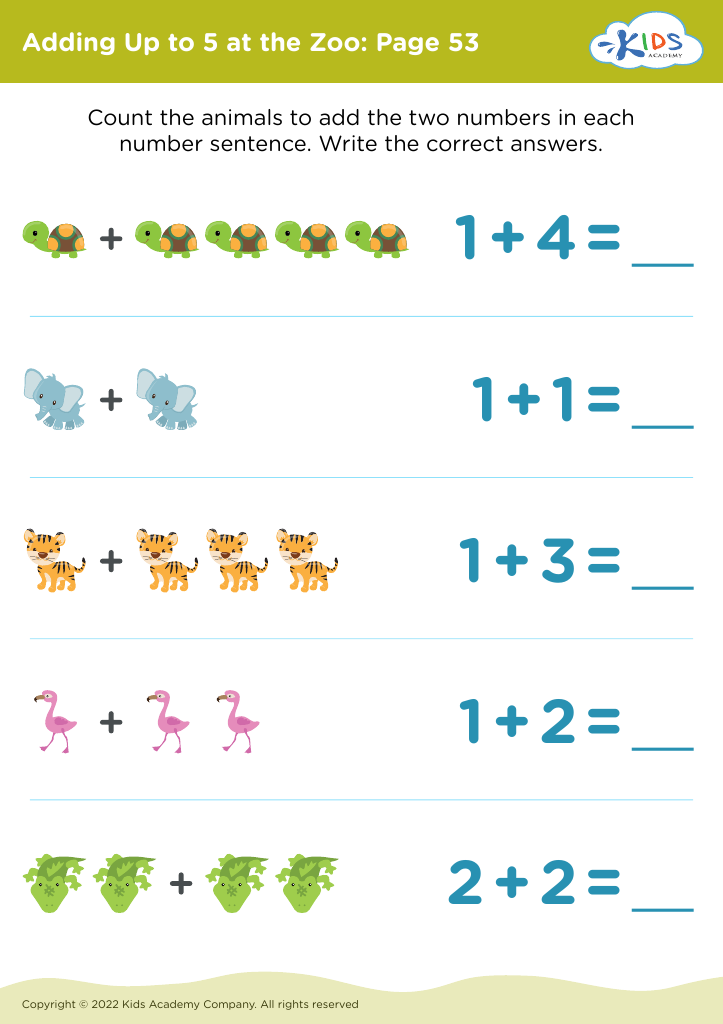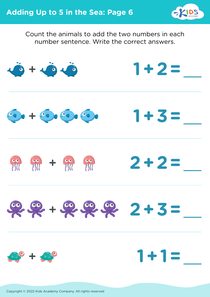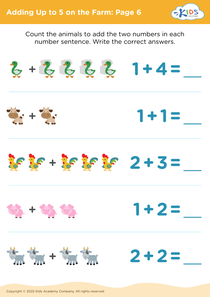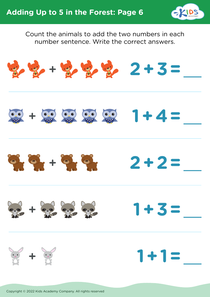Basic arithmetic practice Adding at the Zoo Worksheets for Ages 3-5
4 filtered results
-
From - To
Welcome to our "Basic Arithmetic Practice: Adding at the Zoo" worksheets, specially designed for young learners aged 3-5! These engaging worksheets introduce children to the foundational concepts of addition through fun, animal-themed activities. Each worksheet features adorable zoo animals, encouraging kids to count, add, and solve simple arithmetic problems while fostering their love for math. Perfect for parents and educators, these resources provide an enjoyable way for children to develop early math skills, boost confidence, and enhance problem-solving abilities. Download these interactive worksheets today and watch your little ones enjoy learning to add while exploring the exciting world of the zoo!
Basic arithmetic practice is crucial for children aged 3-5, and resources like "Adding at the Zoo" offer a playful and engaging approach. Early mathematics lays the foundation for critical thinking and problem-solving skills later in life. By introducing children to basic addition through familiar and enjoyable contexts, such as animals at the zoo, we can spark their interest in numbers and calculations.
Engaging in arithmetic practice helps develop essential cognitive skills, including counting, comparing quantities, and recognizing patterns. Interacting with fun themes, like zoo animals, makes learning enjoyable, fostering a positive attitude towards math. This positive reinforcement encourages children to embrace challenges and boosts their confidence in their abilities.
Moreover, practicing basic arithmetic facilitates the development of fine motor skills as children manipulate objects, such as counting animal figurines. It promotes social interaction when children work in pairs or groups to solve problems or share discoveries.
For parents and teachers, employing thematic resources like "Adding at the Zoo" highlights the importance of contextual learning. Understanding that math can be fun and relevant prepares children with the foundational skills they require for future academic success, while also nurturing a lifelong love of learning.
